Peter Mantello

c:o/re short-term Senior Fellow (11/02 − 17/02/2024)
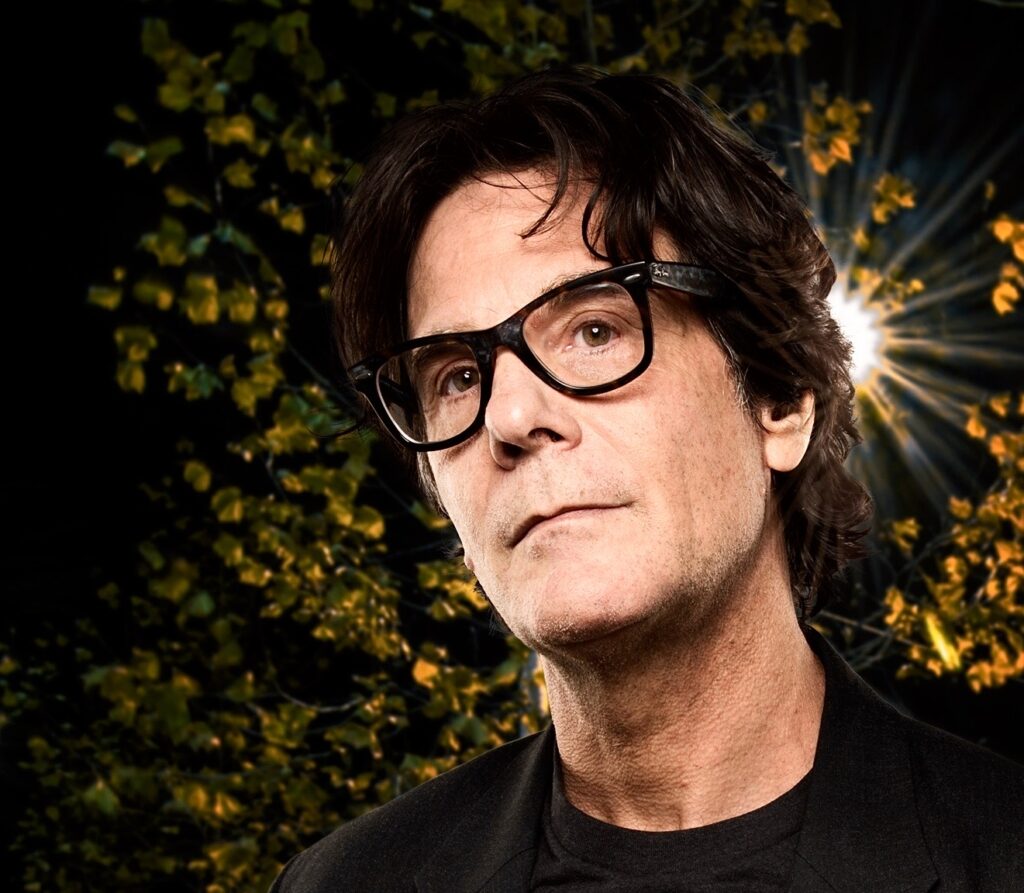
Peter Mantello is an artist, filmmaker and Professor of Media Studies at Ritsumeikan Asia Pacific University in Japan. Since 2010, he has been a principal investigator on various research projects examining the intersection between emerging media technologies, social media artifacts, artificially intelligent agents, hyperconsumerism and conflict. His recent research focuses on interdisciplinary inquiries into phenomenological aspects of human-machine relations, especially, those related to emotional AI. He is also working on a feature film that deals with social, political, and cultural concerns surrounding the rise of emotional AI on six continents.
A Comparison of Views on Emotional AI in Japan and Germany
This research project examines the impact of emotional AI (EAI) in the Japanese and German workplace (on-site, hybrid, gig, and platform), to understand how to create ethical, human-centric, and dignity-enhancing forms of work practices and governance. Employing a mixed methods approach involving interviews, surveys, and innovative design-fiction and policy workshops, the project has five main goals. First, to understand the determinants of technological trust and risk perception of workers toward a new technologically mediated work situation. Second, to cultivate a nuanced understanding of the importance of cultural diversity in AI ethics by exploring the epistemological and ontological dimensions of emotion-sensing technologies. Third, to flesh out potential best practices so that these systems support rather than exploit workers. Fourth, to enable cross-cultural knowledge exchange (Japan/German) between academics and stakeholders. Fifth, to mentor the next generation of Early Career Researchers into leadership roles pertaining to AI ethics and the emerging world of emotion-recognition technologies.
Publications (selection)
Mantello, Peter, Ho MT, Nguyen, M. & Vuong, Q. 2023. Machines that feel: Behavioral determinants of attitude towards affect recognition technology—Upgrading technology acceptance theory with the mindsponge model. Humanities and Social Sciences Communications, 10(1), 1-16. Nature.com https://doi.org/10.1057/s41599-023-01837-1
Mantello, Peter, Ho MT. 2023. Emotional AI and the Future of Wellbeing in the Post-Pandemic Workplace, AI and Society, Springer Nature. DOI: 0.1007/s00146-023-01639-8.
Mantello, Peter, Ho MT, Podoletz, L. 2023. ‘Automating Extremism: Mapping The Affective Role of Artificially Intelligent Agents in Online Radicalisation’ in E.Pashentsev’s, The Palgrave Handbook of Malicious Use of Artificial Intelligence, Palgrave McMillan. ISBN: 9783031225512
Mantello, Peter, Manh, T. Vuong.Q. 2021. Bosses without a Heart: A Bayesian analysis of socio-demographic and cross-cultural determinants of attitude toward the Automated Management, AI & Society. Springer Nature. DOI: 10.1007/s00146-021-01290-1.
Mantello, Peter. 2021. Fatal Portraits: The Selfie as Agent of Radicalization, Sign Systems Studies, Tartu University Press, 2021 https://doi.org/10.12697/SSS.2021.49.3-4.16
Listening to Science – Live Performance by Valentina Vuksic
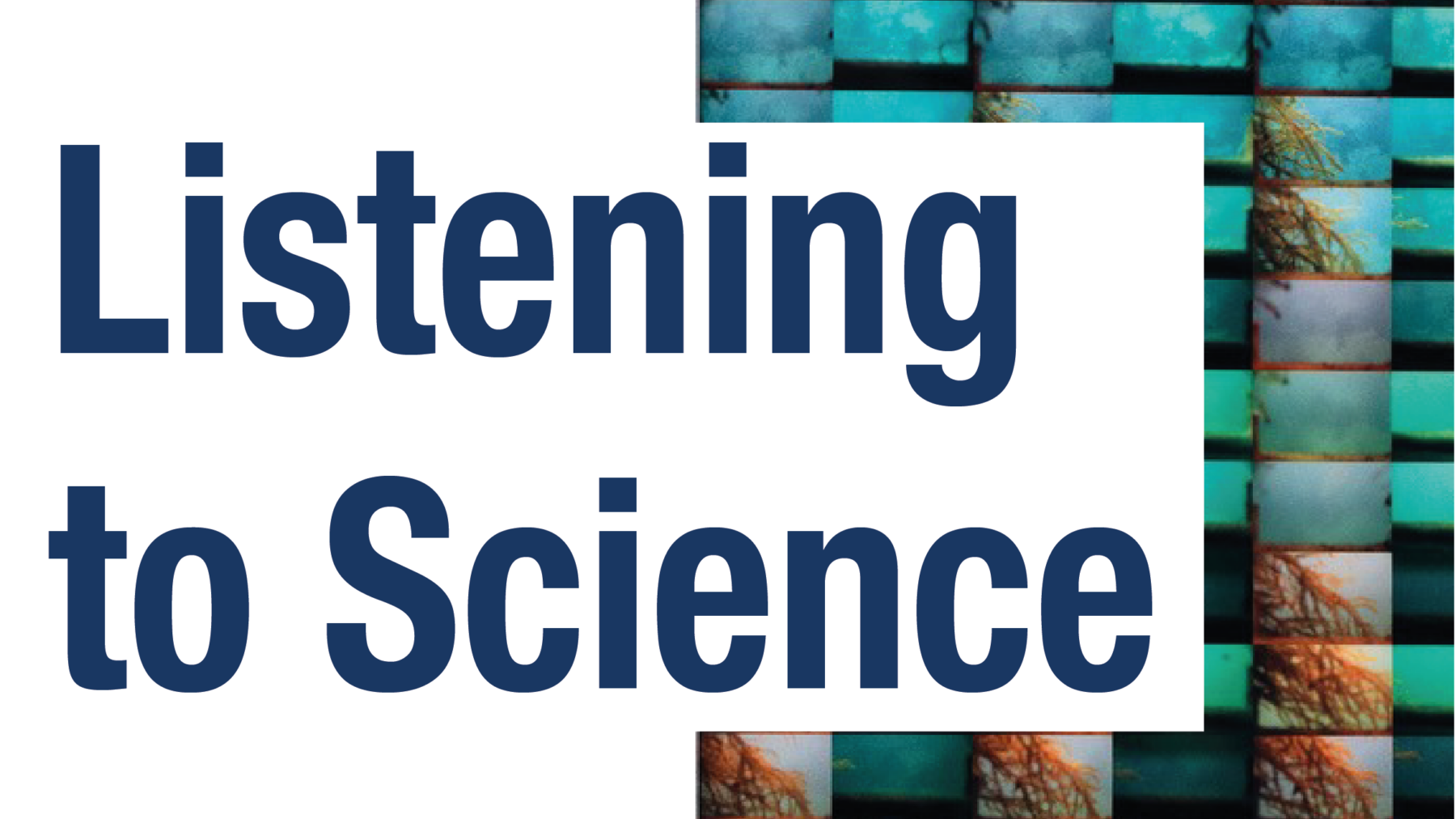
Making digital data work audible and tangible – this is the focus of the artistic research project “Computersignals. Art and Biology in the Age of Digital Experimentation” under the direction of Prof. Hannes Rickli at the Zurich University of the Arts.
On Friday, 16 February 2024 at 7:30 pm at the Käte Hamburger Kolleg: Cultures of Research (c:o/re), Valentina Vuksic, transdisciplinary employee in the research project, will present artistic formats that are based on direct audifications of computer processes and – even without this context – can be performed as musical works.
The sound recordings (electromagnetic fields, current fluctuations and mechanical vibrations) originate from research equipment in biology laboratories of Hans Hofmann at the University of Texas at Austin and the underwater observatory RemOs of the climate impact research by Philipp Fischer (Alfred Wegener Institute for Polar and Marine Research) in Kongfjorden in Spitsbergen, which are stored as audio files and merely reassembled. The performance reflects the materiality of digital data production and processing in the processes of gaining scientific knowledge and operates at the interface between art and scientific research.
You are cordially invited to register at events@khk.rwth-aachen.de.
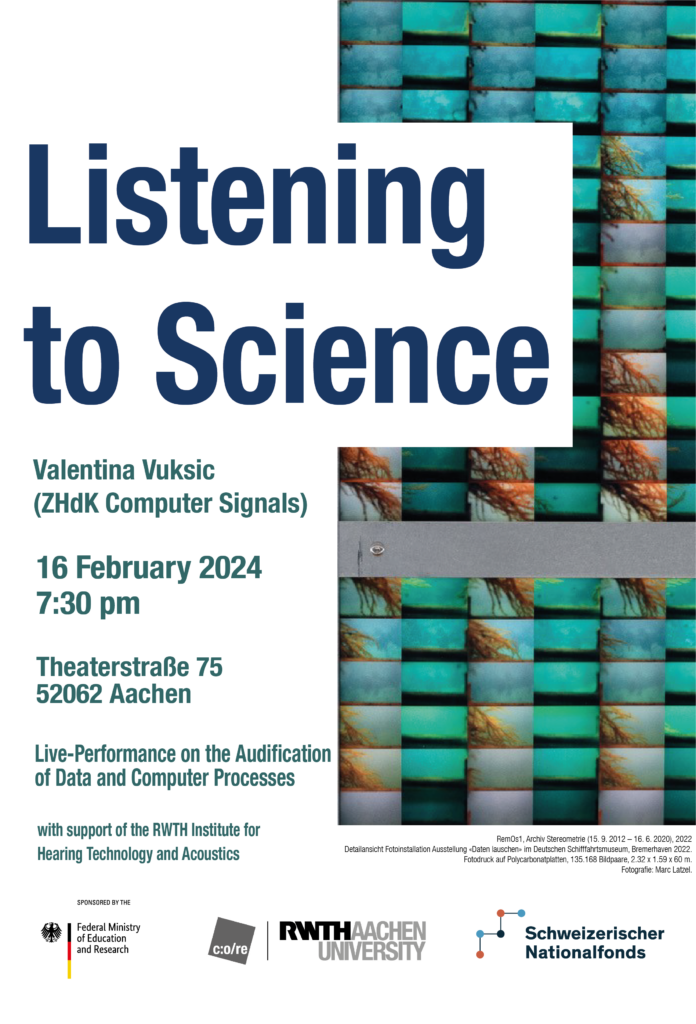
Objects of Research: Hans Ekkehard Plesser
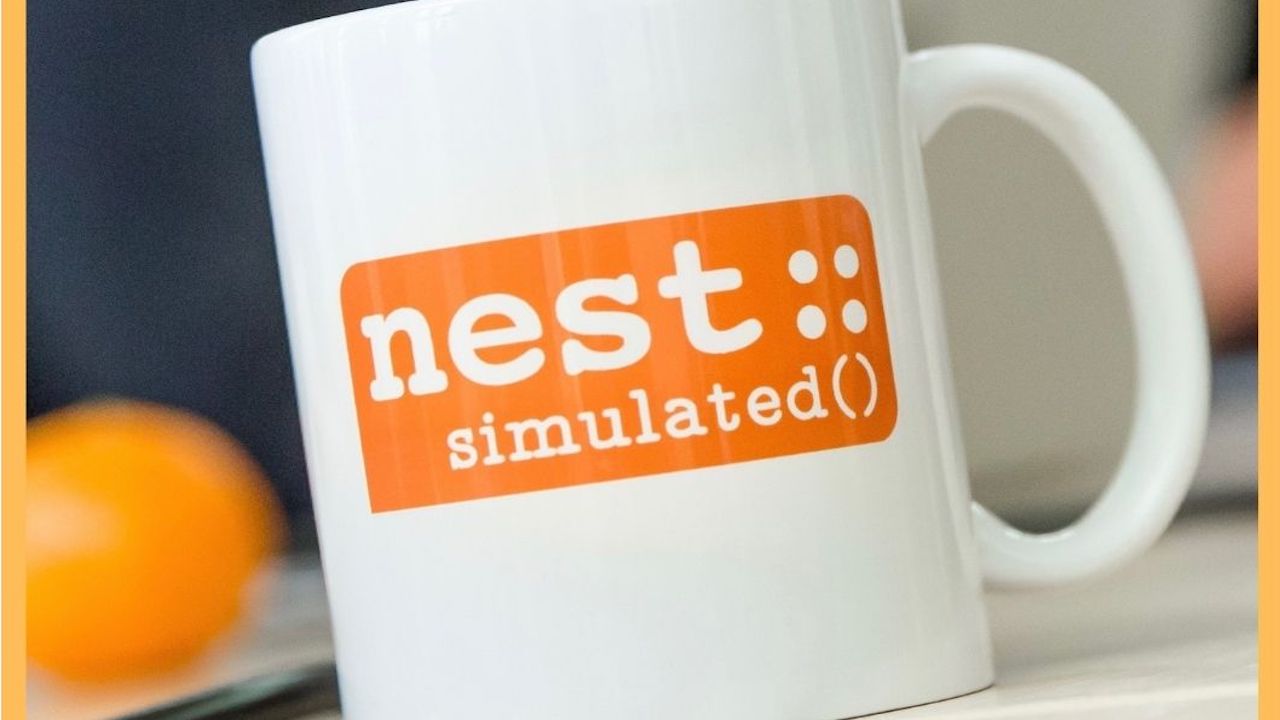

For this post in our „Objects of Research“ series, we interviewed c:o/re Senior Fellow Hans Ekkehard Plesser, whose work focuses on simulation technology for large-scale neuronal network simulations and reproducibility of research in computational neuroscience.
“For the past two decades, I have had a leading role in developing the neuronal network simulator NEST. This high-quality research software can improve research culture by providing a foundation for reliable, reproducible and FAIRly sharable research in computational neuroscience. Together with colleagues, I work hard to establish “nest::simulated()” as a mark of quality for research results in the field. Collaboration in the NEST community is essential to this effort, and many great ideas have come up while sharing a cup of coffee.“

Would you like to find out more about our Objects of Research series at c:o/re? Then take a look at the pictures by Benjamin Peters, Andoni Ibarra, Hadeel Naeem and Alin Olteanu.
Unfelt Treshold: Art Installation & Conversation on Fluctonomous Emergence
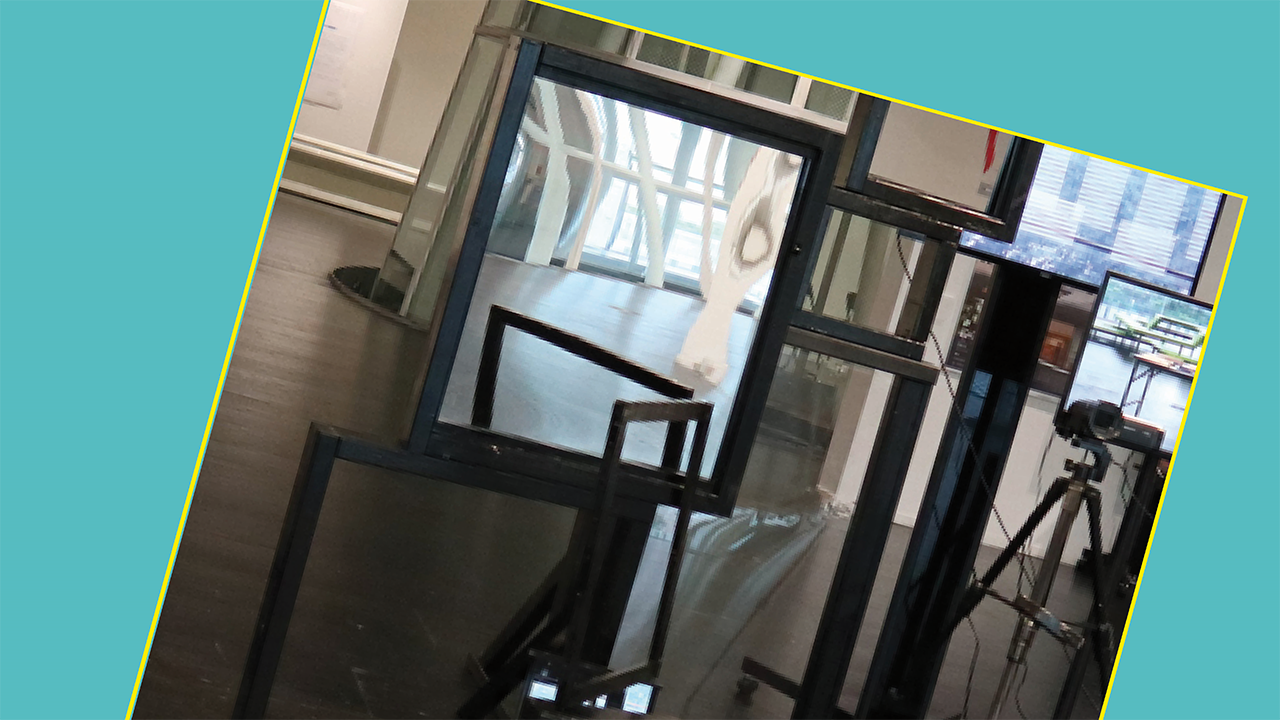
Unfelt Threshold is a project in which Japanese artist Aoi Suwa is indirectly linking together various pieces of objects and images, exhibiting the creations that she has produced over the years. As part of the project, c:o/re Senior Fellow Masahiko Hara and Aoi Suwa will stage a live installation at RWTH Aachen University’s Käte Hamburger Kolleg: Cultures of Research (c:o/re) and engage in a conversation on “Fluctonomous Emergence”, a term coined by Masahiko Hara. His research focuses on the integration of art strategies in science and technology and introduces a new concept of natural intelligence based on the emergent functions of autonomous ambiguous systems that exhibit fluctuant behavior.
This project stems from the concept of “shiki-ik” (識閾, the threshold of consciousness), the boundary where sensations and reactions occur in response to stimuli. The threshold through which transitions occur from the unconscious to the conscious, and vice versa, is the gateway of shifting between consciousness and unconsciousness.
Aoi Suwa continues to employ experimental techniques to create works focused on phenomena that can only be witnessed in situ, developing what could be described as an approach aimed at perceiving thresholds that emerge through the process of traversing back and forth between the realms of the perceivable/imperceivable and conscious/unconscious.
Through this project, we would like to explore its potential as a means of expressing the complexity and the lifelikeness of our current age and seek to reconsider our sustainable social systems surrounded by both living and non-living systems.
The installation can be viewed until 22 February 2024 by prior registration with events@khk.rwth-aachen.de.
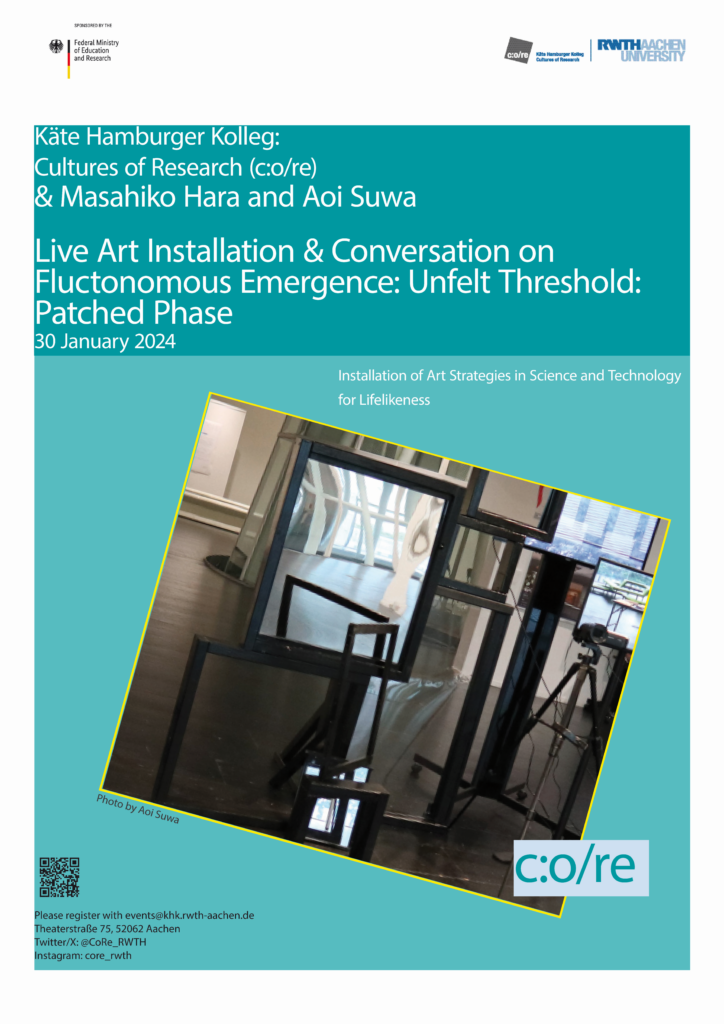
Get to know our fellows: Nikita Braguinski

Get to know our current fellows and gain an impression of their research.
In a new series of short videos, we asked them to introduce themselves, talk about their work at c:o/re, the impact of their research on society and give book recommendations.
You can now watch the fourth video of the music and media scientist Dr. Nikita Braguinski on our Youtube channel:
Check out our Media section or our YouTube channel to have a look at the other videos.
Alexander von Humboldt Fellowship for Giora Hon
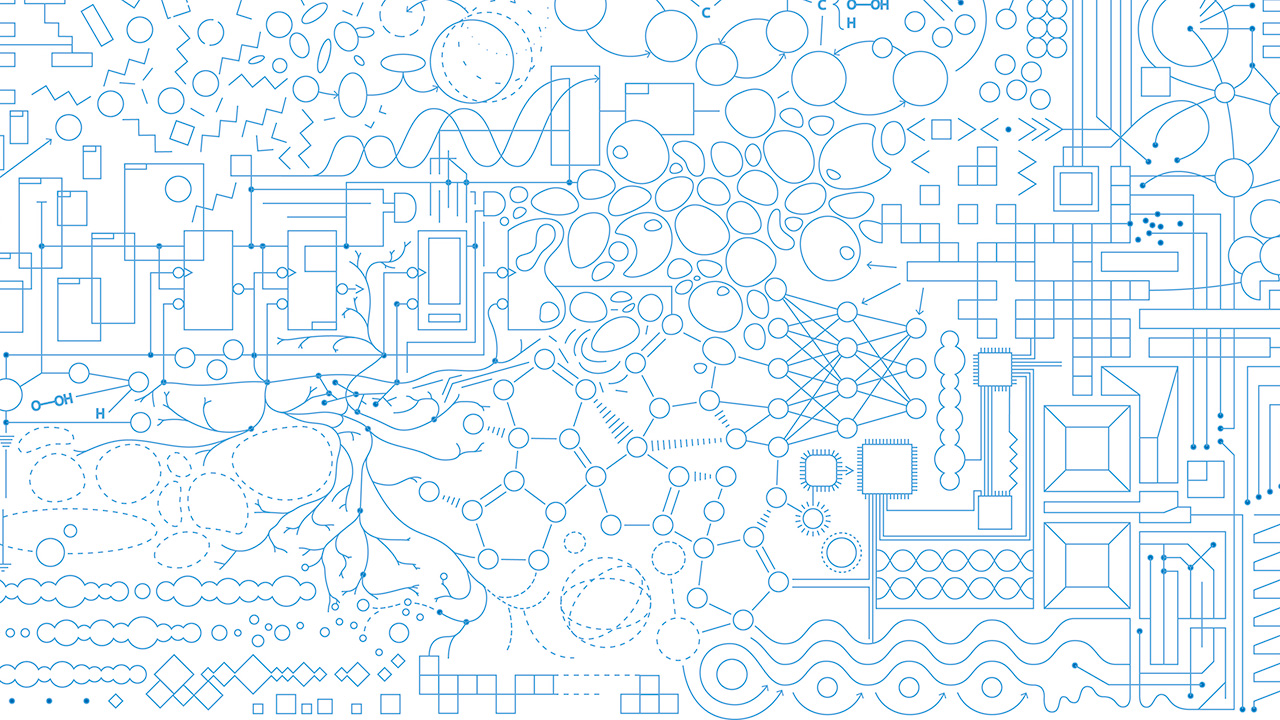
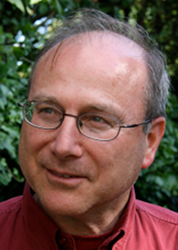
c:o/re short term fellow Prof. Dr. Giora Hon has been awarded with an Alexander von Humboldt Fellowship (Renewed Research Stay) for the period from 1 January to 31 March 2024, which gives him the opportunity to continue working on his research while staying in the research environment of c:o/re in Aachen.
During the fellowship, Giora Hon will work on his project entitled “A History of the Concept of Model”: How were models, designed as didactic devices, transformed into tools of research? A philosophical analysis of this fundamental change in the late nineteenth century will be the focus of this research stay.
We congratulate Giora on the fellowship and look forward to further cooperation, for example the organization of a workshop on concept formation in May 2024. Stay tuned!
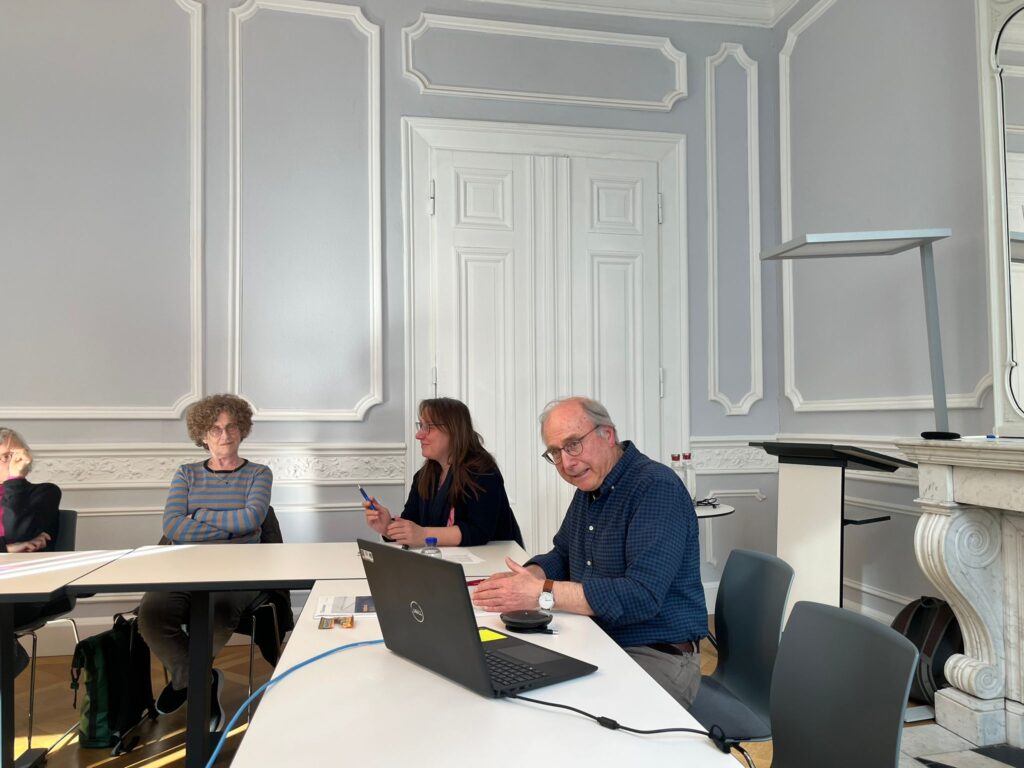
Objects of Research: Alin Olteanu
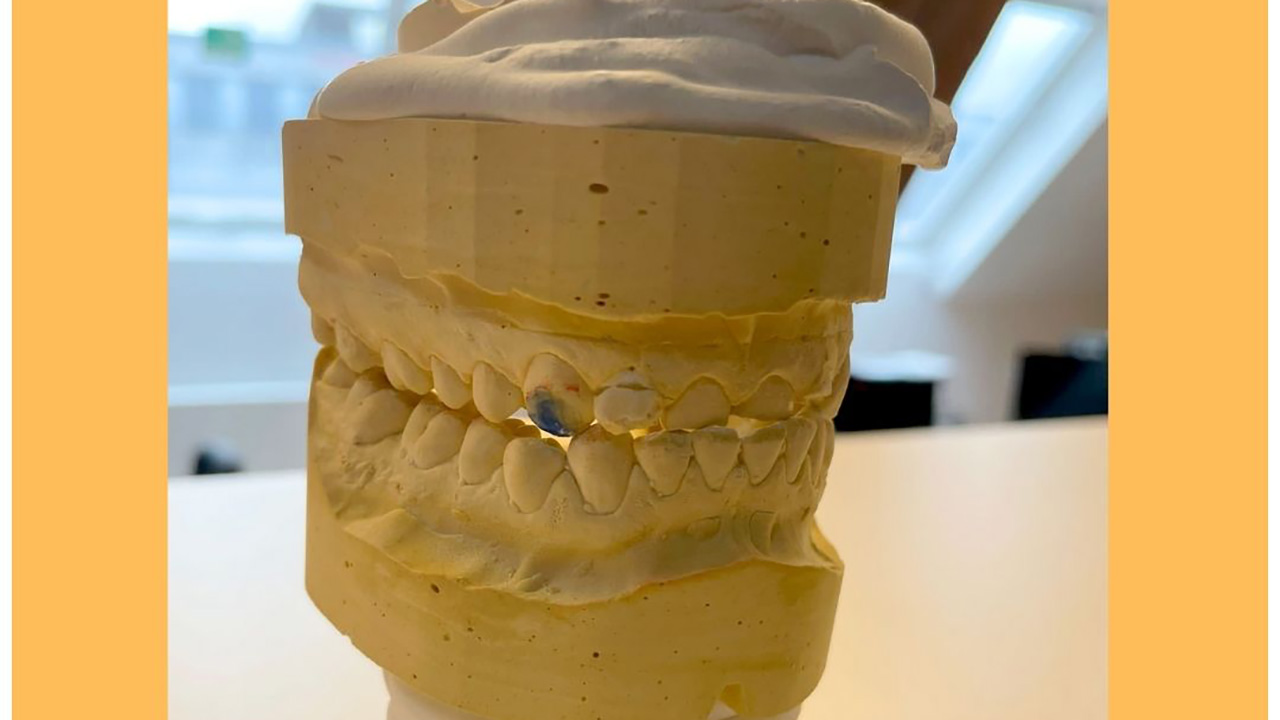

Today, c:o/re post-doc and publications coordinator Alin Olteanu shares a picture of an object sitting on his desk in the c:o/re office. He is currently researching the social and cultural consequences of digitalization.
“The 3D replica of my teeth that stands on my desk reminds me of two important things. First, a model is what we make of it. The epistemic value of modelling lies in interpretation, which depends on but is not defined by representation. I make something very different of (a replica of) teeth than a dentist and an archaeologist do.
Secondly, and not any less important, this replica reminds me to smile, and I hope that it might inspire colleagues to smile, too, when they see it on my desk.
To tell a smile from a veil, as Pink Floyd ask us to, we need to know that a smile is infinitely more important than scientific modelling. If scientific modelling does not lead to smiling, it is of no value. A smile is a good metonymy to be reminded by.”

Would you like to find out more about our Objects of Research series at c:o/re? Then take a look at the pictures by Benjamin Peters, Andoni Ibarra and Hadeel Naeem.
Get to know our fellows: Hadeel Naeem

Get to know our current fellows and gain an impression of their research.
In a new series of short videos, we asked them to introduce themselves, talk about their work at c:o/re, the impact of their research on society and give book recommendations.
You can now watch the third video of the philosopher Hadeel Naeem on our Youtube channel:
Objects of Research: Hadeel Naeem
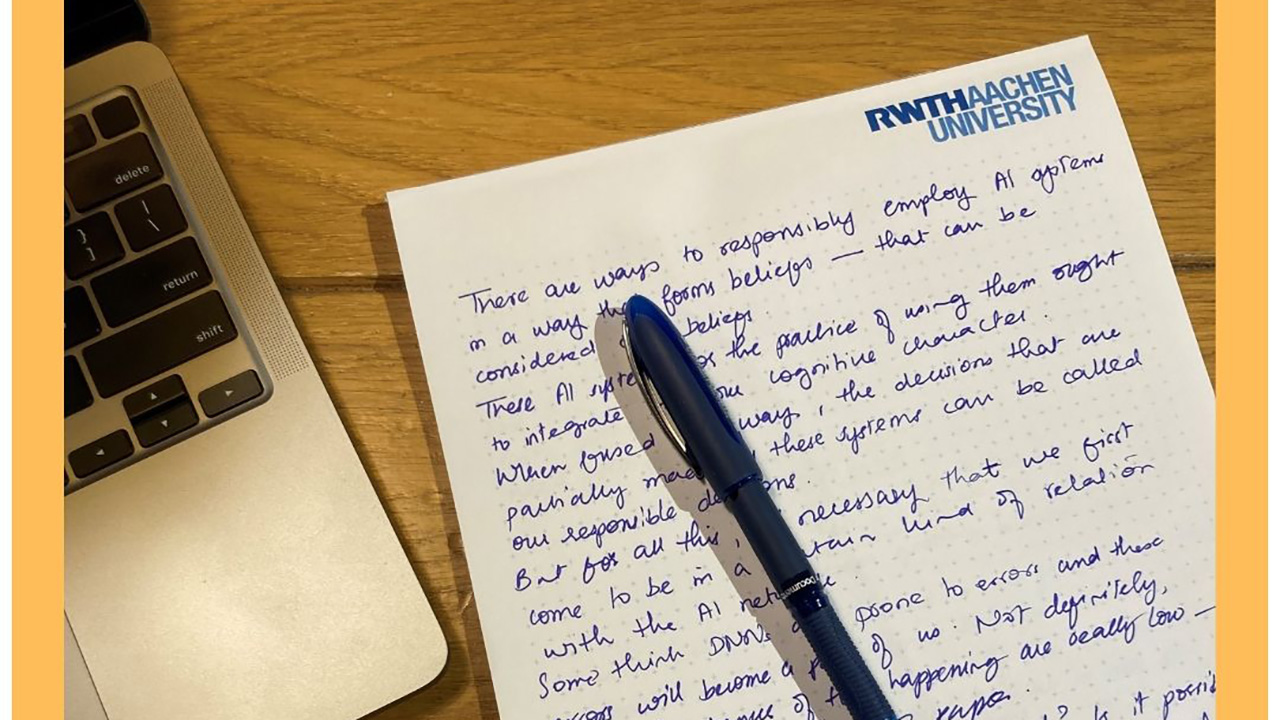
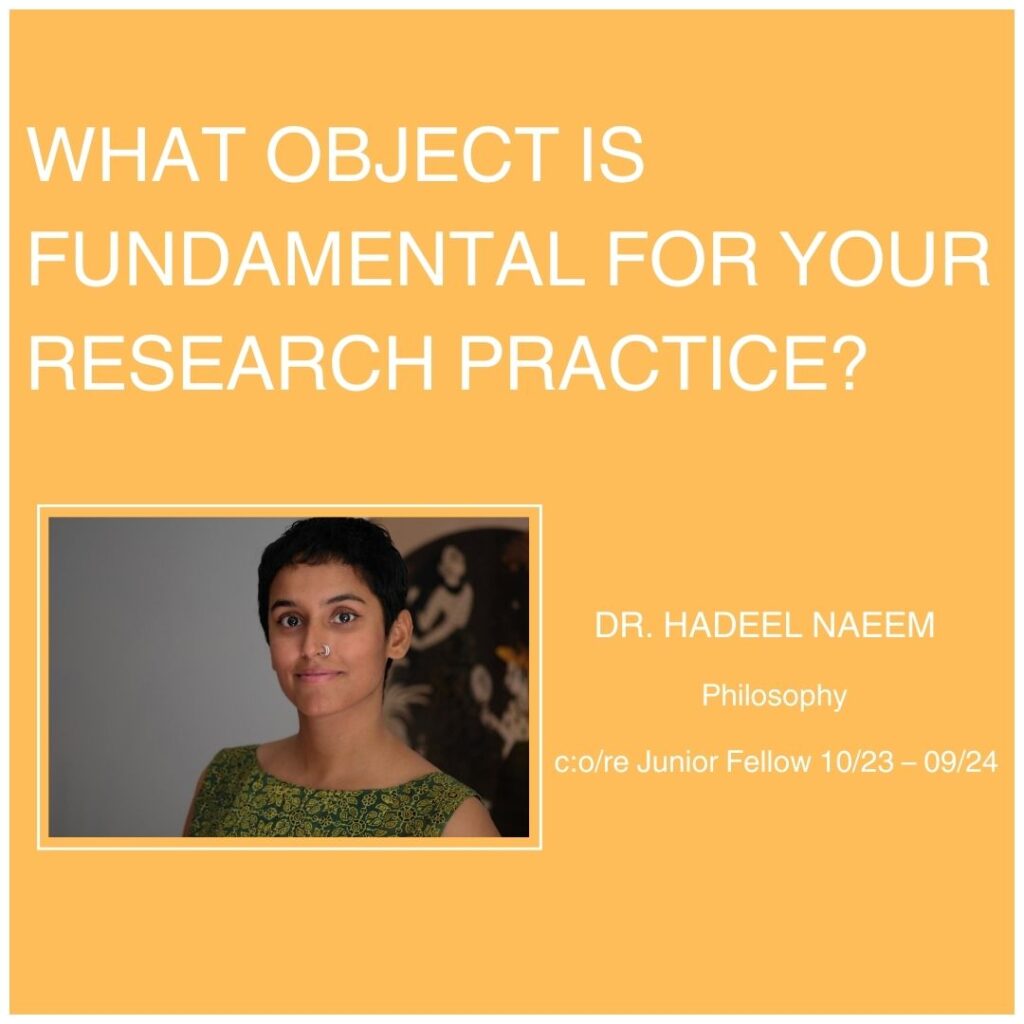
For today’s edition of our “Objects of Research” series, we interviewed c:o/re Junior Fellow Hadeel Naeem. Her current research focuses on how to responsibly extend the mind with AI systems and therefore acquire extended knowledge.
“A pen and a notebook are essential for my research. They help me think. It’s not at all about the words I write. I rarely read them again. Scribbling is just an act that helps me stack ideas on top of each other and do all the complicated thinking and connection-building.
I also turn to scribbling in my notebook when I am stuck in the writing process. There is often a time after the first rough draft of the paper when some ideas stop flowing smoothly or don’t fit very well with the main argument. I turn to the notebook and start writing the main ideas, deliberating how they support each other.
This is all especially interesting since a lot of my research is about extended cognition, which is the idea that we sometimes employ external resources such that part of our thinking happens outside our body (in these resources).”

Call for Abstracts: Workshop on “Participation and STS sensibilities: taking stock and moving forward”
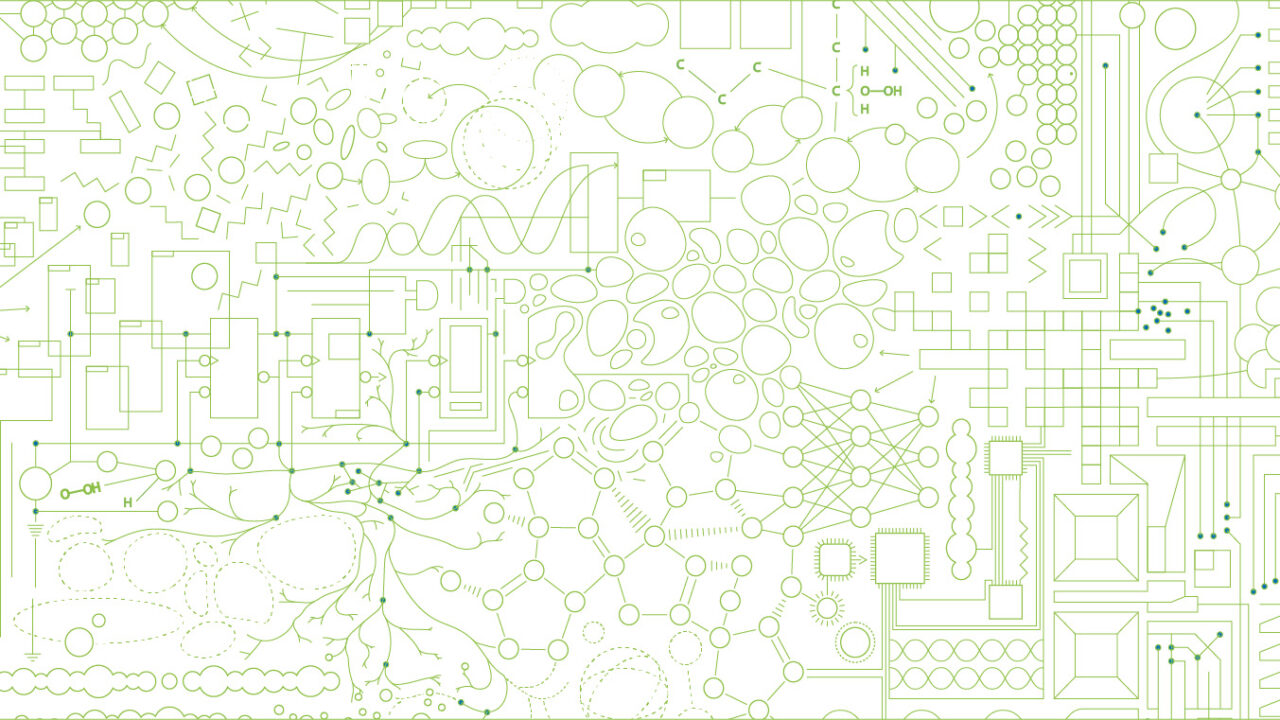
Interested scholars are invited to submit abstracts for the workshop “Participation and STS sensibilities: taking stock and moving forward”. This workshop aims to explore what taking STS sensibilities seriously would mean for conceiving, understanding, practicing, and valuing public participation.
Keynote speaker: Professor Jason Chilvers (University of East Anglia)
Date: 23 May 2024
Location: Maastricht, The Netherlands
Abstract submission: abstracts (500 words) can be submitted here by 15 January 2024.
The workshop is organized by Care and Public Health Institute (Maastricht University, The Netherlands) with support of The Käte Hamburger Kolleg: Cultures of Research and Human Technology Center (RTWH Aachen University, Germany) and Spiral Research Centre (University of Liege, Belgium).
More information on the workshop theme can be found on the website: https://www.inpart-project.com/news/participation-and-sts-sensibilities-workshop/
Feel free to contact Olga Zvonareva (o.zvonareva@maastrichtuniversity) and Natasa Stoli (a.stoli@maastrichtuniversity) with any questions.



